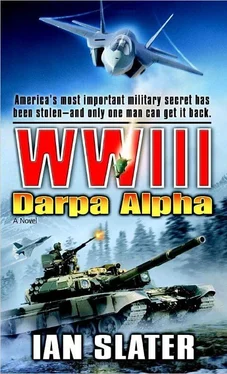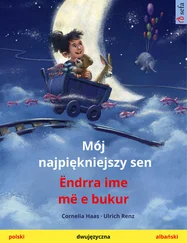“Never mind the French,” cut in the steely Abramov. “Who’s our devil this time?”
“Not Muslims, I hope?” proffered Cherkashin. “Those bastards in Chechnya? Killing our people in the Moscow theater in ’02 and all those children in Beslan just two years later.”
“We don’t know,” said the official disingenuously, “whether the Muslims were connected to that.”
Cherkashin was outraged. He stood up. “Muslim fanatics murdered my nephew. I won’t have anything to do with them.”
“The Nazis killed twenty million of us, General!” shot back the Sobranie smoker. “We did business with them when it suited us. We got half of Poland; they got the other half. Sit down!” It was said with such unexpected authority that it transformed the atmosphere in the room, Abramov believing that these two officials from Orsk were in fact military men themselves. “We’ll be selling equipment capability,” the smoker continued, taking another long drag on his cigarette, which was now pointing at the air defense chief. “General Cherkashin, I believe you were a chief negotiator with the Iraqis during the Cold War. How many thousand air defense units did you sell them ? And you, Abramov, how many of our T-80 tanks did you sell to the Iraqis?”
Sergei Cherkashin made to say something but sat down instead.
“We’d be selling them tanks?” asked Abramov.
“No,” interjected the other, smaller, official. “Other equipment capability.” He was agitated. “Do you know,” he asked intently, looking first at Abramov and Beria, then at Cherkashin, “what our entire military budget was the year after the anti-Fascist wall came down in Berlin in ’89?” He didn’t wait for an answer. “Four billion U.S. dollars. You know what the U.S.A.’s was?”
“I’ll tell them,” said his colleague, who now leaned forward to make the point. “The United States’ defense budget was not four billion, comrades, but two hundred and sixty billion. Sixty-five times that of the Soviet Union!” His tone and that of his colleague made it obvious to the three generals that they were dealing with more than two senior bureaucrats.
Air Defense’s Cherkashin sighed impatiently. “So now we know how much richer the U.S. is than we are, but why, may I ask, did you choose the three of us — a general from Air Defense, Viktor here from Infantry, and our tank commander, Abramov? Perhaps we are so good-looking?”
Big allowed himself a grin, revealing through the fog-like smoke three gold crowns on on his lower teeth and an extraordinarily expensive crown and bridge in his upper jaw before he resumed his serious tone. “Three reasons, Comrades,” he told them, whom he and Little referred to only as A, B, and C. “First,” explained Big, “because your exceptional organizational skills have come to our notice. Whether you liked it or not, you were part of Putin’s transition team before you were reassigned to your separate commands.”
“Exiled,” put in Beria bitterly, “a thousand miles from Moscow.”
“Secondly,” said Big, taking no notice of Beria’s comment, “you’ve all seen combat. In Afghanistan and elsewhere.”
“So we three have organizational skills and combat experience,” said General Abramov. “What is the third reason?”
“You’re very poor,” said Big. He looked at each one of them in turn, before exhaling fully, his smoke engulfing them. “None of you can sleep because you don’t know how you’re going to look after your family in this new capitalist paradise of ours.” He paused. “You’re worried sick, gentlemen.” He fixed his gaze on Abramov. “Even you, Mikhail.” He inhaled again slowly, deeply, giving them time to realize just how much he might know about them beyond their outward show of braggadocio. As the brownish blue smoke poured forth, he continued, “I know what it’s like. Believe me. We now have in Russia the very, very rich and the dirt poor. The rich have reserves to see them through the chaos that’s followed Yeltsin, Putin, and their successors. The poor—” He shrugged. “Well, most of them have never known anything else, only now it’s worse. But you three—” He was using his cigarette as a pointer again, jabbing it at them. “—Your whole officer class has been raised to enjoy the fruits of your hard work for the party. And now it’s all crumbled.” He stubbed out his cigarette. “I’ve seen your medical files. Not your official military medical records, your local— private —physician’s. Zopiclone?” He left the name of the sleeping pill hanging in the air before adding, “Prozac and Volga!” Volga was the cheapest brand of vodka, and Big gave a sardonic grin, reciting the commercial jingle, “Like the mighty river Volga, it will wash your troubles away!” He leaned forward, the smile gone, shoulders hunched with intensity. “For you, we’re offering a way to win back Russia for the party and to earn yourselves some hard cash for your families. It is what the Americans call ‘a win-win situation.’ Da?” He leaned back and opened his tin of Sobranies, plucking out another cigarette.
“How much money?” asked Air Defense General Cherkashin, his medals clinking as he leaned forward, placing both hands on the table.
“A hundred thousand a month,” said Big. “For each of you.”
“Rubles?” asked Beria.
“American dollars.”
The normally cool, hard-eyed Abramov tried to appear nonchalant, but his face was flushed with excitement and he had to make a conscious effort to sit back and look relaxed, as if he could take it or leave it.
Beria and Cherkashin were stunned.
“Ah, where do we move this equipment, this capability?” asked Cherkashin.
“Where Moscow can’t see it,” replied the Sobranie smoker. “As far from here in Orsk and from Moscow as possible, in fact. East. You’ll be told in due time, if you accept our offer. But once you’re given the location, the three of you hold your lives in your hands. We want you to—” Reaching into his pocket, he fished out the gold Dunhill lighter. “We want you to think it over. But quickly. There are plenty of other candidates, disaffected officers like yourselves, but my colleague and I—” He looked at Little. “—have to get back to Moscow. He glanced at his Rolex, asking his smaller partner, “The last plane out of Orsk is at 2100, correct?”
“Yes.”
“I’ll give you fifteen minutes,” Big told the three generals, who were now convinced by the official’s use of “2100” that he was a military man. “We’ll be down in the foyer,” Big added, getting up and gathering his jacket and the tin of Sobranies. “It’s either yes or no.”
The three generals went out into Orsk’s polluted air to talk it over. The road’s badly cracked surface was an apt symbol, Mikhail Abramov thought, of the state of Russia. It was the beginning of the end.
“Necessity is the mother of invention,” Big had told Abramov, the commander of the grossly understaffed Siberian Sixth Armored Division. It was a phrase that had been quoted many times by the officer corps in the turmoil since the collapse. He himself had had to cannibalize half his tanks just to keep the other half going.
“So?” said Viktor Beria, looking at the leaner Abramov and the taller, gray-haired Cherkashin, the air defense general. “Are you two in? I know I’m sick of constantly scrabbling around to make ends meet.”
Abramov had been conjuring up the glory days of the Siberian Sixth; at least the days had been glorious until the humiliating defeat that he, as a young lieutenant, and other tank platoon commanders had suffered in a trap wherein American M1A1 Abrams tanks had duped the famed Sixth Armored Corps during a winter battle between it and the U.S.-led U.N. peacekeeping force in Siberia.
Читать дальше












